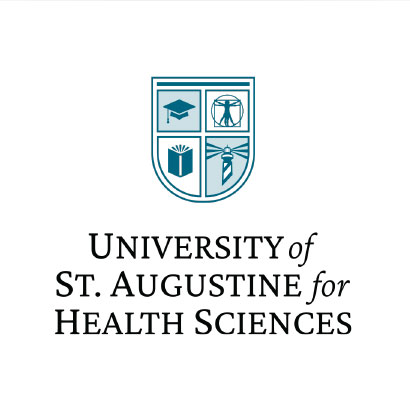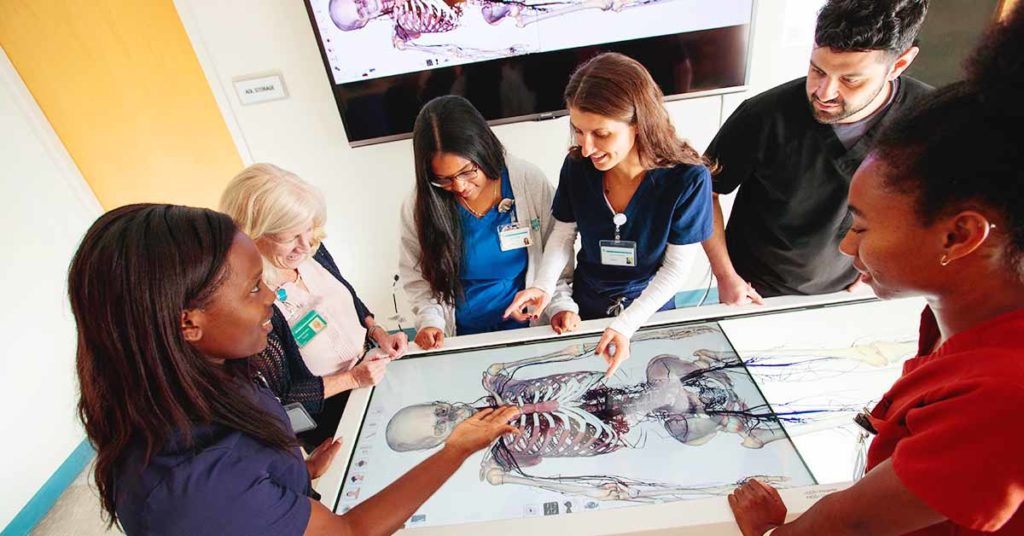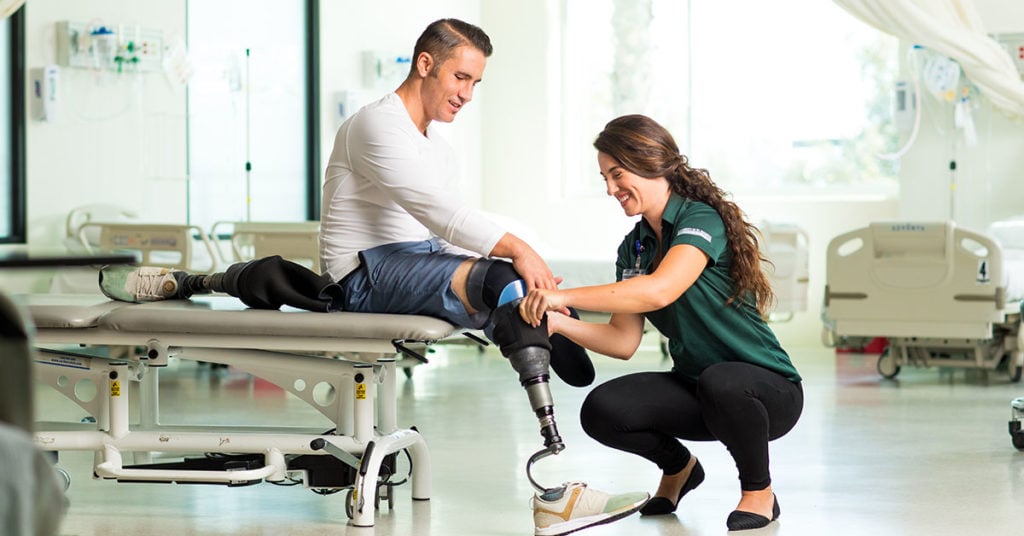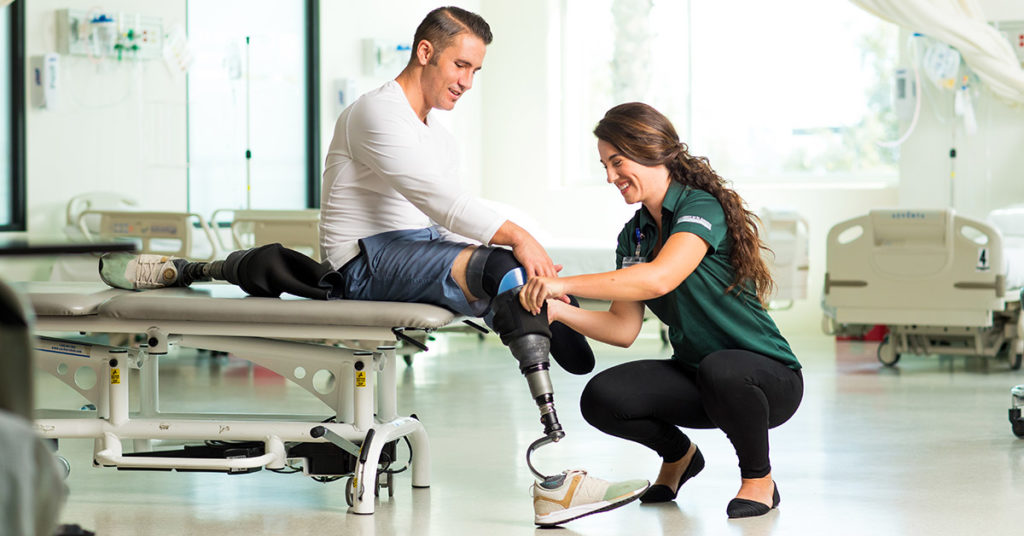

Do occupational therapists (OTs) need a doctorate? If you’re an experienced OT who wants to pursue a doctoral-level degree, a Post-Professional Doctor of Occupational Therapy (PPOTD) program, like the one at USAHS, is designed with you in mind. How can a PPOTD open doors for your career?
Why Earn a PPOTD? Explore 10 Career Opportunities.
Applying your advanced knowledge and skills to your current practice.
Like many USAHS PPOTD graduates, you may remain in your current position to create positive change in your workplace. Many of the course assignments in the PPOTD program are for immediate application within your current clinical practice. As you learn new strategies and techniques based on current research, you can implement them to improve client outcomes. Complete your capstone project by investigating an issue from your workplace.
Advance to a leadership role within your current practice area.
A PPOTD opens doors to leadership roles in clinical practice and administration. The promotion you’ve been seeking may be within close reach. The Executive Leadership specialization in USAHS’s PPOTD program offers a fresh perspective on the big picture of your organization. It encourages strategic, critical thinking about organizational systems and approaches to client work. As you study alongside professionals from other healthcare disciplines, you will become better prepared to lead interprofessional teams of occupational therapists, physical therapists, speech-language pathologists and more.
Open a private practice.
If you dream of opening a practice, a PPOTD degree can provide a bird’s-eye view of the profession that will prepare you to lead a team of OTs and other practitioners. Operating a private practice also requires expertise in marketing, human resources, space design, bookkeeping, billing and more. Learn these entrepreneurial skills through self-study. OT entrepreneurship is a positive pursuit that can promote professional growth.
Work as an independent contractor.
Some OTs are self-employed as independent contractors and pick up short-term assignments in clinics, schools, businesses or home settings. It’s a flexible and versatile way to practice. The PPOTD can broaden your knowledge about various practice areas and give you the expertise to try something new as a contractor. Networking with USAHS interprofessional students and faculty may also lead to unique contract opportunities.
Pursue state, national or international organizational leadership roles.
If you’re passionate about OT and see yourself playing a role in advancing the profession for clients and colleagues, consider a role on a state OT board or within a national organization such as the American Occupational Therapy Association (AOTA). Getting involved with a group like AOTA or joining an organization that focuses on broader healthcare issues may allow you to influence OT-related policy at the local or national level.
Pursue academic or administrative positions in occupational therapy education.
Some USAHS PPOTD graduates teach in OT degree programs at higher education institutions. Choose the Teaching and Learning specialization in our PPOTD program to learn the latest teaching methodologies and build curricula for online and in-person learning. You may enjoy a role as a fieldwork educator. Serve as a mentor/advisor to entry-level OTD capstone students or a trainer for clinical new hires.


Become an unconventional OT.
More and more practitioners choose creative careers in occupational therapy. You could work in an emerging practice area, such as with individuals who have mental health issues or who are experiencing homelessness or incarceration. Or, design and produce adaptive equipment for OTs to use with patients. Launch a podcast or a blog about the profession, and interview OTs creating change in the field. Or, carve out your own OT niche in a unique area.
Pursue an advanced education in health policy.
Some USAHS students enroll in our PPOTD to Doctor of Education (EdD) Bridge program to better prepare for instruction and academic administration. PPOTD to EdD students transfer 24–27 PPOTD credits to the EdD to complete the EdD faster. Other PPOTD students study health policy to become OT advocates and influence legislation.
Seek textbook and journal publication opportunities.
As you gain more research experience during your doctoral program, you may be motivated to explore an area of OT theory or practice by researching it further and publishing your findings, perhaps in collaboration with other academics. Leverage your PPOTD capstone project and pursue scholarly publication and presentation opportunities.
Consider a role in publishing or editing.
Consider writing for an online or printed OT journal as a freelancer or staff member. Or, launch your own website, blog, podcast or academic journal.


Do you need a doctorate for occupational therapy to have a thriving career?
You do not need a doctorate to enjoy a fulfilling career. However, some USAHS PPOTD graduates assert that the PPOTD program has helped them to rediscover their professional purpose and reignited their passion for occupational therapy.
Request information to learn more about USAHS’ dynamic PPOTD program and become an occupational therapy leader.
*OT entry-level programs are subject to the accreditation regulations of ACOTE; however, post-professional programs are not under the jurisdiction of ACOTE. The PPOTD program is not ACOTE accredited.







